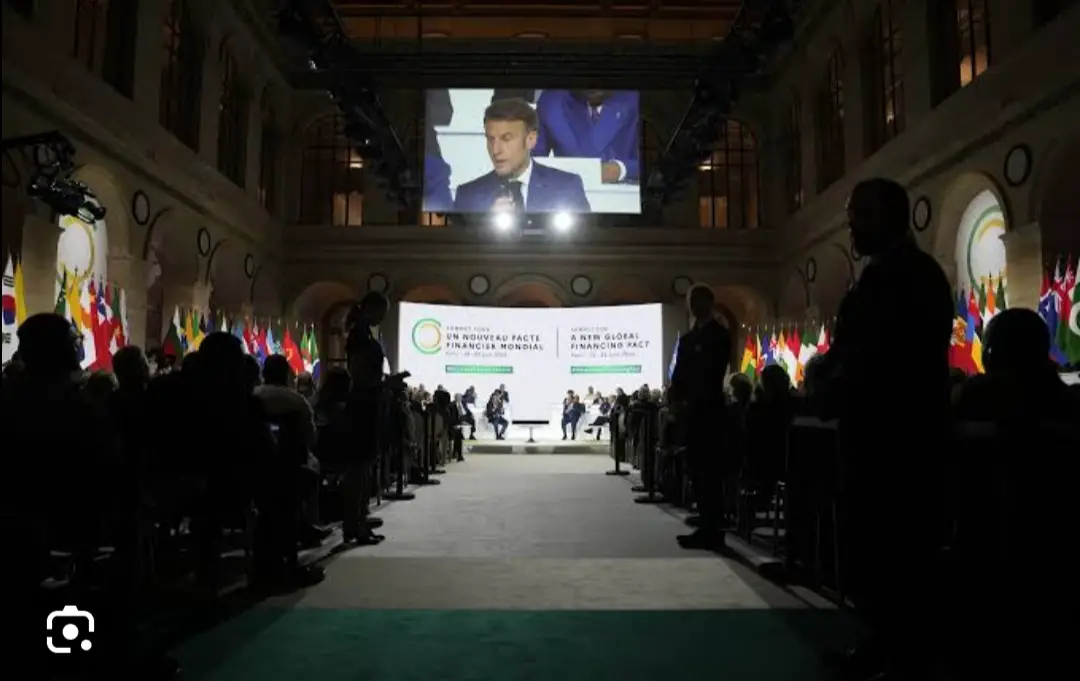A tax on greenhouse gas emissions from international shipping has not been agreed upon by attendees of the finance and climate summit in Paris.
The two-day gathering of world leaders and finance chiefs to address poverty and climate change came to a close on Friday without making any significant announcements.
The Summit for a New Global Financing Pact was held under the direction of French President Emmanuel Macron. John Kerry, a climate envoy, and Treasury Secretary Janet Yellen represented the United States.
Li Qiang, the Prime Minister of China, Luiz Inácio Lula da Silva, Ursula von der Leyen, the President of the European Commission, Ajay Banga, the Head of the World Bank, and Kristalina Georgieva, the President of the International Monetary Fund were also present.
At a meeting in July of the International Maritime Organization, the United Nations agency responsible for regulating shipping, the concept of a global tax on shipping emissions may be considered.
$100 billion in annual tax revenues According to some experts, such a tax could raise $100 billion annually. A strong endorsement of it in Paris would have given Macron a symbolic victory.
Macron stated, “This sector is tax-free, and there is no reason why it should not be taxed.”
However, the French president suggested that the United States and China did not support the idea.
He continued, “If China, the United States, and several key European countries are not on board, then you would put in place a tax that would have no impact.”
The revenue generated by the tax would be given to developing nations to assist them in confronting climate change’s challenges. She continued, “I believe I would agree with President Macron’s description of the logic of why it would be appropriate, and it is something that the United States will look at.”
It was unclear which nations at the summit were in favor of the proposal, which could be a significant step toward getting a industry that emits a lot of carbon dioxide to pay for the costs of fighting climate change.
The International Maritime Organization asserts that shipping accounts for nearly 3% of greenhouse gas emissions.
A report from the European Parliament has warned that its share could significantly rise by 2050.
To-do list Despite the fact that the Paris summit did not have the authority to make formal decisions, Macron had promised to provide a to-do list with a tool for tracking progress. A such document has not yet been made available.
A few activists and non-legislative associations had encouraged the culmination members to guarantee that rich nations focus on obligation help for unfortunate countries, including the retraction of credits.
A debt suspension provision for nations affected by extreme weather was also discussed.
To get more cash, activists likewise pushed for a duty on the petroleum derivative industry and another on monetary exchanges, yet those two proposition seem to have little help from rich countries.
In terms of concrete announcements made in Paris, the International Monetary Fund provided certain vulnerable nations with special drawing rights worth $100 billion.
Deals struck On the summit’s first day, two deals were announced. According to French officials, Zambia’s debt-ridden creditors, including China, came to an agreement to restructure $6.3 billion in loans.
In addition, Senegal reached an agreement with the European Union and its Western allies to support efforts to raise its renewable energy share to 40% by 2030 and improve access to energy.
The only two top leaders from the Group of Seven Most Developed Countries in the audience were French President Emmanuel Macron and German Chancellor Olaf Scholz.
The Source Al Jazeera/AP
